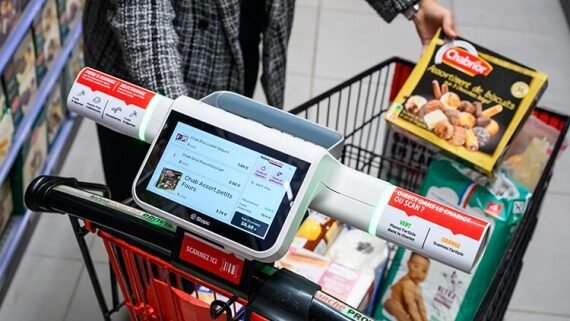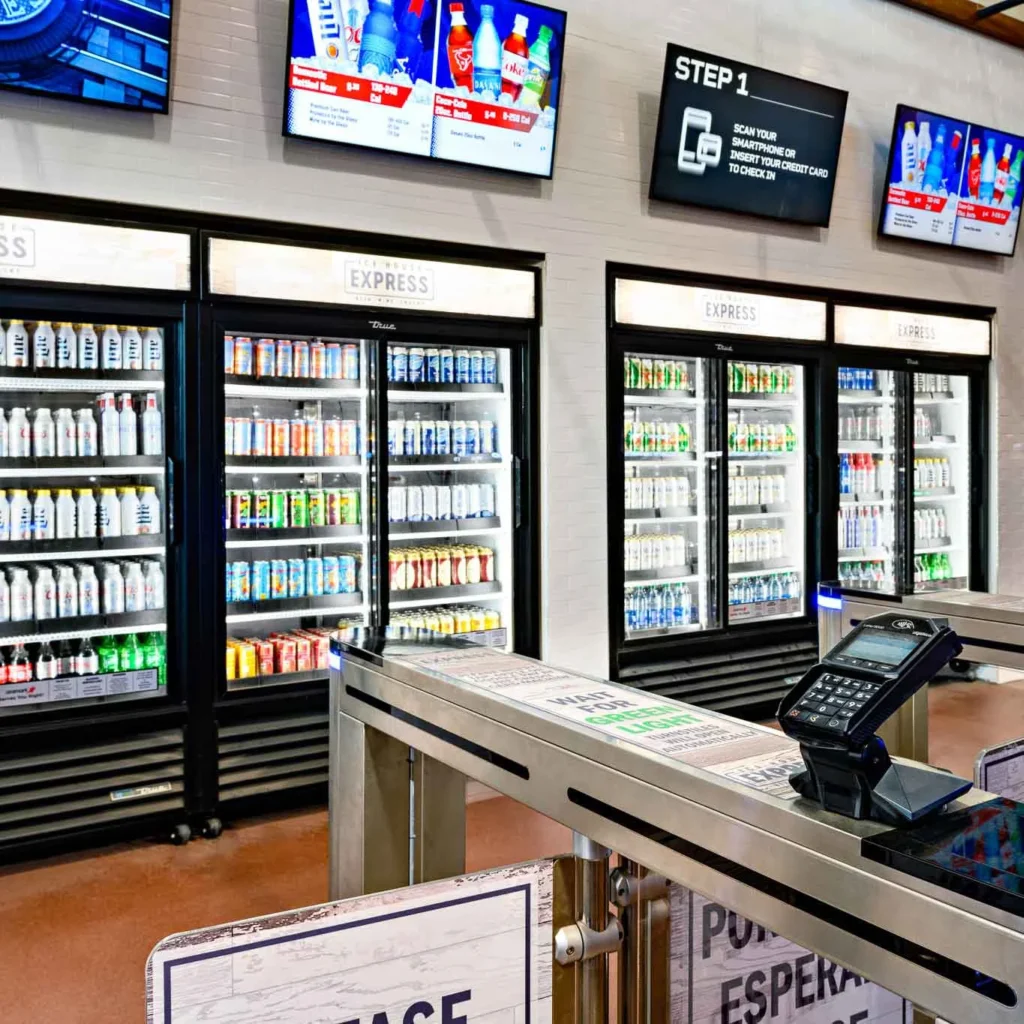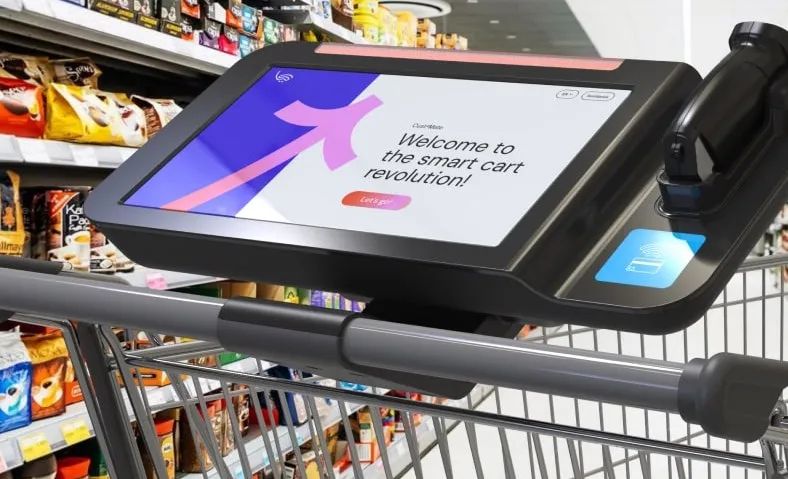Every innovation starts with a simple question: how can things be done better? For Zippcart, a Nigerian tech startup founded in Choba, Rivers State, that question revolved around one of the most frustrating aspects of shopping in Africa—endless checkout queues.
For decades, customers across Nigeria have learnt to endure the long lines at supermarkets and retail stores, often with resigned patience. But for retailers, those queues are more than an inconvenience; they are a direct threat to customer satisfaction, sales turnover, and overall efficiency.
That is the space Zippcart stepped into. In early 2025, the startup unveiled its bold solution—a smart self-checkout device tailored to the unique challenges of emerging markets. Unlike Western self-checkout systems that demand sophisticated infrastructure, strong internet access, and hefty investment, Zippcart was built for the Nigerian reality.
The device works offline, plugs directly into existing retail systems, and requires minimal staff training. Retailers don’t need to rip apart their operations to adopt it. This simplicity is what makes Zippcart stand out. It’s not just technology—it’s technology that understands context.
As one of the founders explained during an early pitch, “We didn’t want to copy-paste a Silicon Valley solution into Nigeria. We wanted something built here, for here, and affordable enough for the average supermarket to adopt.”

Table of Contents
Tackling Retail Pain Points with Smart Simplicity
To appreciate Zippcart’s potential, one has to picture the typical Nigerian shopping experience. On a busy Saturday in Lagos, for example, shoppers at large chain supermarkets like Shoprite or Market Square often find themselves waiting up to 20 minutes just to pay for groceries. Smaller retail outlets struggle too, with limited staff juggling cashier duties, stock management, and customer complaints.
Zippcart’s innovation tackles this head-on. The device is mounted directly onto shopping carts. As customers pick up items, they simply scan barcodes using the Zippcart device. Each scan updates the cart’s digital screen, showing the item, price, and total bill.
By the time shopping is complete, the customer has a clear overview of their purchases. Checkout is no longer a drawn-out process; all they need is a cart code to finalise payment—whether via POS, transfer, or cash.
This model comes with three distinct advantages:
- Speed: Customers check out in minutes, reducing long queues and improving overall store flow.
- Transparency: Real-time cost tracking prevents surprises at the till, empowering shoppers to stay within budget.
- Efficiency: Staff are freed from manual scanning duties and can focus on stocking, customer support, or store management.
What makes it more compelling is cost. Traditional self-checkout systems used in developed markets can run into thousands of dollars per unit. Zippcart is priced significantly lower, making it an achievable investment for mid-sized retailers in Nigeria and beyond. And because it works offline, rural and semi-urban supermarkets don’t need to worry about internet blackouts interrupting sales.
It’s a simple but powerful reminder: sometimes innovation is not about sophistication but about meeting people where they are.

Positioned for Expansion Across Africa and Beyond
Nigeria’s retail sector is worth billions of dollars and continues to grow alongside urbanisation and rising middle-class consumption. Yet despite this growth, efficiency remains a stubborn challenge. Long lines, manual stock-taking, and unreliable payment systems often frustrate both consumers and retailers.
Zippcart’s model, with its offline-first approach, is perfectly suited for this environment. But the bigger story lies in scalability. Across Africa, similar conditions exist—from Kenya to Ghana, Uganda to South Africa. Reliable internet can be patchy, infrastructure investments are often slow, and global solutions are priced out of reach for most businesses.
This is where Zippcart could spread its wings. The team has already hinted at expansion discussions with retailers outside Nigeria, positioning itself not just as a national solution but as a continental player in retail innovation.
The startup’s growth potential is bolstered by the rise of African consumer tech ventures that address everyday problems with homegrown solutions. Just as mobile money redefined payments in East Africa, Zippcart could well redefine how Africans shop in physical retail environments.
Looking further ahead, the model could even expand into other emerging markets in Asia and Latin America where similar structural issues exist. Offline-first technology has universal appeal in developing regions—and Zippcart may be on the path to becoming an exportable Nigerian success story.

Bridging Technology and Everyday Retail Realities
What makes Zippcart remarkable is not just the technology, but the philosophy behind it. Too often, African markets are left behind by global innovations that assume ideal conditions—fast internet, stable power supply, and wealthy consumers. By contrast, Zippcart embraces constraints and turns them into strengths.
It is a Nigerian solution to a Nigerian problem, but one with lessons for the wider world. Retailers don’t need to fear disruption or costly investments. Instead, they gain a system that fits neatly into their existing operations. Shoppers don’t need extensive digital literacy; if you can push a trolley, you can use Zippcart.
The future of retail in Africa may not look exactly like the West’s polished, high-tech malls. Instead, it will be defined by context-driven tools like Zippcart that prioritise accessibility, affordability, and everyday relevance.
As the African tech ecosystem matures, more of such solutions will emerge—practical, user-friendly, and rooted in local knowledge. For now, Zippcart is a shining example of how innovation, when done with empathy and context in mind, can bridge the gap between aspiration and reality.
Join Our Social Media Channels:
WhatsApp: NaijaEyes
Facebook: NaijaEyes
Twitter: NaijaEyes
Instagram: NaijaEyes
TikTok: NaijaEyes





